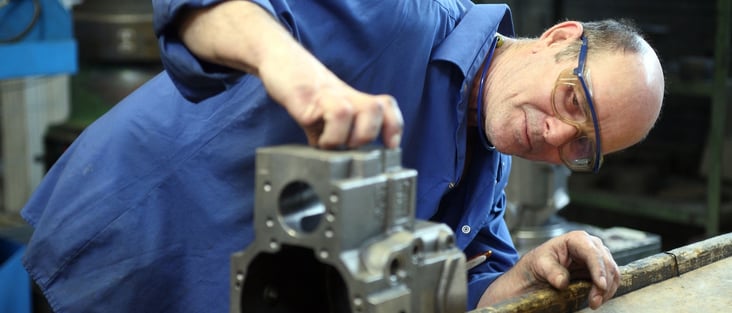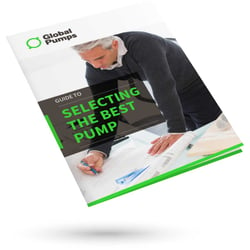Whether it’s a faulty pump component or poor maintenance strategies, pump failure can occur for several reasons.

To better understand what pump failure is and what can cause it, our experts break it down…
What is pump failure?
Pump failure can be caused by several issues, including but not limited to:
- Pressure: restrictions in the pump’s suction can result in cavitation of the pump. Root causes of this are generally undersized suction lines, plugged suction strainer or valve issues.
- Cavitation: when liquid pressure falls below vapour pressure, bubbles form and implode on impellers and interior surfaces, damaging pump internals, disrupting flow and leading to seal failure.
- Temperature: blocked discharge can result in fluid stagnation, resulting in a spike in temperature.
- Leakage: leaks caused by mechanical failures can be catastrophic.
- Vibration: Several causes of vibration which can damage seals or internals and cause pump failure.
- Installation: improper installation can lead to shaft misalignment, excessive vibration leading to pump damage.
Causes of Pump Failure
When pump failure occurs, it’s important to know how it has happened, and how to avoid it moving forward. Consider some of the following…
Design of your Pump
Engineers choose pumps based on their Best Efficiency Point (BEP) – the point on the curve where the pump is most efficient. Pumps can also be chosen to perform outside of their BEP to meet the client’s budget. At these points, impellers are subject to non-symmetrical forces, causing unstable conditions like high vibration levels, excessive hydraulic thrust, increased temperature, erosion and cavitation.
Maintenance
Following pump installation, efforts to mitigate problems or enhance performance can cause damaging consequences. Preventive and predictive maintenance strategies are implemented to fix the primary failures before they become catastrophic secondary failures – yet sometimes these can be so intrusive that they cause issues themselves.
Even complete pump rebuilds can cause “infant mortality” failure rate for the pump equipment, if not done right.
How to avoid pump failure?
Our Global Pumps team believe the best way to avoid or handle a pump failure is to understand the true causes of why pumps fail. This includes conducting a systematic, fact-based analysis of the issues associated with failure events. These can be done during the design phase or reactively at the maintenance stage.
It’s important that during the problem analysis you dig deep into the causes of the excessive forces, or other attributes, determine how they go there and take necessary steps to eliminate the pump failure.

